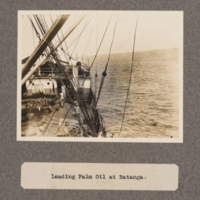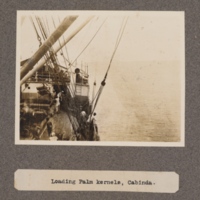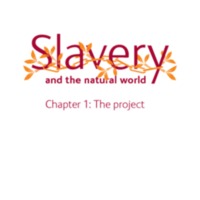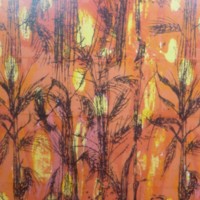
Loading palm oil at Batanga

Loading palm kernels, Cabinda

Slavery and the Natural World
In consultation with local community groups, in 2007 the Natural History Museum commissioned new research into its collections that link slavery and the natural world. The research uncovered experiences of enslaved people and the use of plants in their everyday life, as food, medicines and poisons. It also examined the complex relationships between enslaved people and naturalists exploring newly-colonised lands. The museum ran a series of public events, co-hosted by Race on the Agenda, which aimed to bring the historical, scientific and public viewpoints together. It created online educational resources on themes such as Commercial Plants, Everyday Life, Diet and Nutrition, and Resistance. The museum also developed cross-curricular ideas for school lessons in Science using the context of slavery, looking at foods across different cultures, for example.

Trade and Empire: Remembering Slavery
The Whitworth Art Gallery was one of eight heritage bodies in the ‘Revealing Histories: Remembering Slavery’ partnership in Greater Manchester. The project set out to explore the history, impact and legacy of slavery on Britain through collections and community links in the North West.
'Trade and Empire: Remembering Slavery' explored the themes of trade and empire, commerce and collecting, and the impact of the experience of slavery and its legacy. Four invited artists and academics (SuAndi, Kevin Dalton-Johnson, Dr Emma Poulter and Dr Alan Rice) worked with Whitworth curators and learning staff to create the exhibition. It comprised of selections from the Whitworth's collections, contemporary works by Black artists, and objects on loan from Manchester Museum, John Rylands University Library Manchester, Bolton Museums and Archives Service and private collections. Areas of focus included a history of the Benin Bronzes, representations of Black people in British art, photographs of West Africa belonging to Tom Singleton Gardner, and printed textiles designed by Althea McNish. The exhibition was accompanied by a series of community engagement events.